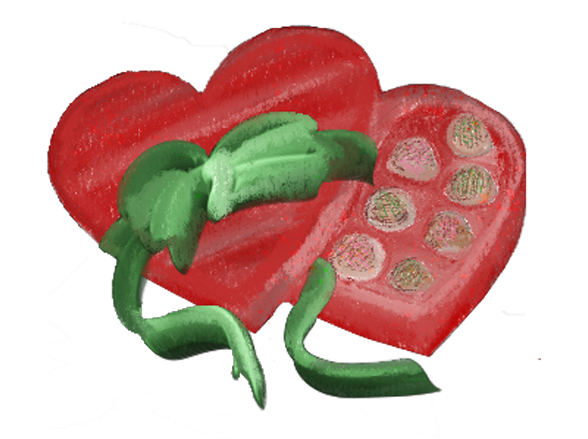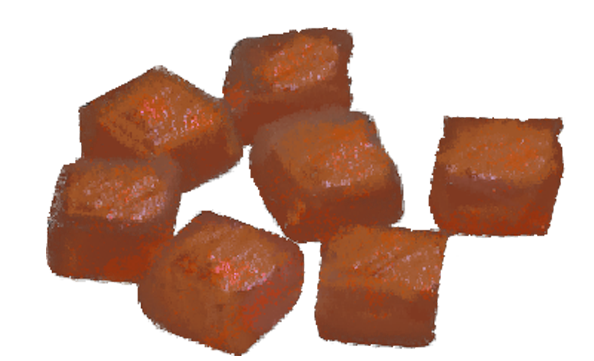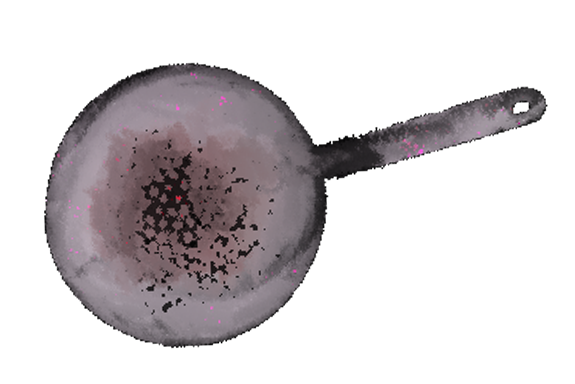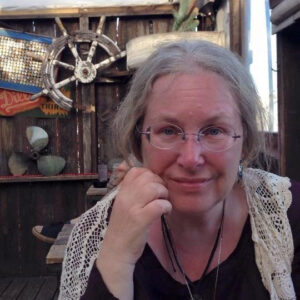

On my last day of work before Midwinter break it was a cold and cloudy evening, with the wind off the Bay promising rain. I was in a dark place. Money had run out for grad school so I was drifting, barely getting by, in a tiny studio apartment with my teen daughter. She had left that morning to spend the holidays with her father and I faced a couple weeks mostly alone. I had spent most holidays alone since her father and I had parted ways years before. It gave me a chance to catch up on writing, and the research I had undertaken for graduate school.
But, not this year.
I had taken a transitional job with AmeriCorps that autumn, working in a literacy program in the public schools. Midwinter break meant nearly two weeks on my own with a couple meetings after the New Year. The wages were a bit more than minimum and a promise of money to finish my research when I was done. It wasn’t easy, but, with a strict budget, we were OK. Mostly, it gave me time to think about the Next Thing. It was marginally better than slinging hash at the deli while I looked for a better job. At least kids were learning to read. The truth is that I was stressed about the money, my future, and bored with the work.
All I was thinking that day was, it’s going to be Yule and Christmas and Hannukka and New Years and there are some people I need to thank for their kindness. I’d found some things earlier in the year for my daughter, set them aside, and grandma had some surprises in transit as she always did. (I was so lucky to have my mom in my life in those days.) But, what about the people around me who had shown me kindness and friendship during what had to be one of the hardest times in my life?
At the grocery store, picking up some salad and a couple things for dinner, I decided to make something. I am a pretty good cook and, although sweets are not my best, I could whip up something, I was sure. I remembered making fudge with my mom as a little girl. And, I could ask my friend, Stephie, who makes amazing sweets, exactly how to do this. I remembered it as a magical process, watching the chocolate melt and stirring, stirring … waiting and testing the candy in a bowl of ice water for doneness. I could do this. I imagined pretty boxes with ribbons with a sweet treat inside. In fact, in the closet behind a hat box of scarves, were several vintage boxes of exactly the right shape and size, and some tissue left from another midwinter years ago. I could add some cinnamon-sugared almonds in a packet to make it extra special. I had almonds, sugar, and cinnamon already. Roasting them would be easy, and the scent while they cooled was heavenly. It was the right solution.

I looked in my purse, and if I was super careful, I had just enough for some chocolate squares and some marshmallow creme. I added them to my basket next to the eggplant and the yoghurt and headed to the checkout line.
The streets on the way home to my little place were slick with rain, and traffic was heavy with impatient commuters. I turned the corner, pulled into the complex parking space, turned off the ignition, set my keys into my bag and got out of the car in anticipation. A half hour later, with the dulcet tones of my local public radio station telling me the day’s news, groceries in the fridge, and an eggplant stuffed and roasting in the oven for my dinner, and I was ready for my evening of making sweets for my friends.
I called my friend Stephie, who gave me explicit instructions, and we chatted for a few minutes about mutual friends and interests.
In short succession, while I set out the ingredients, I received several calls. The first from my mother, who wasn’t feeling well, but it was probably a “touch of flu.” My daughter called to say hello and chattered happily about her day. Just as I hung up, the phone rang again. My boss wanted to know if I’d come in early the next day for a meeting. It had gotten dark and even stormier outside, and it was late before I could get to the task at hand, so I decided to have dinner, watch a movie, and make my sweet treats in the morning.
It was still storming in the morning. The meeting with my boss, a lovely woman who cared deeply about her employees and the students, was an easy hour wrap up of the semester. After our business was done, we all drew names from a hat and planned the office party. She gave us all a small card, and lunch, and sent us on our way. I left to make fudge and I knew she was a true chocoholic, so it would be a perfect gift at the Secret Santa office party the following Monday. Dreaming of the luscious richness of my fudge, I headed home. I got home to find the heater had broken and the power was out. No problem. It was day time and I was lucky enough to have a gas range.
I actually love cooking. Inviting people to my house for dinner or lunch, or packing up a basket of goodies to share with friends in the park, is one of my favorite things to do. I now have a terrific kitchen and live in a house that’s great for doing just that. That day, however, in my studio’s tiny kitchenette that hadn’t been updated since, very possibly, the Great Depression, with my one pot, things did not turn out as planned. Let’s start with my pot. It was a small pot and the only one I owned. I usually made oatmeal or rice in it. Enameled steel dented and stained with use, originally from the Army/Navy surplus store, the only thing good about it was that it was made of a pretty good gauge of steel.

Today, I set it on the stove and melted chocolate. I followed Stephie’s instructions, adding each ingredient in exact proportions, but no matter what I did, it failed. The chocolate broke in the melting, the marshmallow cream separated and the fudge, rather than melt into that glorious, rich and gooey treat, refused to go beyond the “syrup” stage. Then it congealed into an oily mass and burned the pan. I opened the back door to let the stench of burned sugar and chocolate escape, threw the mess into the trash and set my ruined pan into the sink, hoping that I could save it.
I stared at it for a long minute. And a few minutes longer.
There was no more chocolate. I had less than $10 in my purse and the rent money for January in the bank.
That was it.
The power was still off and I was cold, in the dark, facing a long night.
I sank to the floor of my tiny kitchen and cried.
That was the moment that everything fell on me all at once: The end of my grad school dreams, the future I had wanted so much I could taste it. I had worked so hard and come so close. My daughter wasn’t there, and all the holidays and birthdays and summer camping trips I had missed because she was away and doing all of those things with her father. All of it. It was just….all wrong. I could see no way out of my situation. Just more years of holidays and summers alone and one low-paid job after another.
And… hope also escaped out the back door with the fumes of the burnt chocolate.
Things did turn out OK.
A day later, a check arrived in the mail, a generous gift from a dear friend, and I used part of it to buy some pretty truffles for those friends who had been so kind. Including a particularly appropriate one for the Secret Santa office party. The rest of the cash I tucked away for another day.
That year ended and, in the one that followed, I found a better job. And, I got to go back and finish my degree. My daughter grew up, and we walk and camp and celebrate together.
I never told anyone about the afternoon I spent on the kitchen floor in front of the open door as hope fled with burnt chocolate. It was too private. In some way, shameful. I should be stronger, have more gumption, more backbone. I wasn’t depressed or sick. I wasn’t one of the trod-upon minorities I worked with every day. I didn’t come from an economically stressed inner city neighborhood or a poor rural community, I was a nice girl from the suburbs! I had advantages and privilege, not writ large, but certainly the privilege of a good education and a loving family, at the very least. What was wrong with me?
Of course, we can all answer that question based upon hindsight and the tyranny of economic class.
In this time when the future seems so uncertain, when dreams, long held and put aside or lost, and even ordinary things are distant, now, we are all waiting for something to change. At times it seems that we are living on hope alone. We open doors inviting hope to come in with vaccines and promises from industry and political leadership. Some of us have lost so much that it’s hard to even add up the losses: Death of loved ones, our homes, the job and school, any economic security. It feels like we are alone. Our only comfort is a tenuous kind of hope, and we don’t know even if that is real.
Some of us react with anger and denial and lash out or try to bargain with what fate or coronavirus has handed us: Why me? It’s got to be a hoax. No, it’s real, but not as dangerous as we’re told. I don’t care, I have to take care of my family, me …
Some of us go deep into that aloneness and shut out all the world.
And, some have the duty and privilege of caring for the rest. The toll on the healthcare workers and the people who have kept all of us fed, clothed, and entertained is immense. Let us not forget the workers who have kept the technology working for those Zoom workers, the virtual concerts, the messenger “group” video chats, the morning and midnight chats and gossip on Twitter and Facebook.
Thank you.
Because of you, I still have hope.
Thank you to my friend, who, so long ago, sent that check at just the right moment and, with its arrival in my mailbox, brought hope back in through the front door.
One final thing: That year, my mom, in some maternal premonition of how things would go in the future months, sent me shiny new pots and pans for Christmas.
— February 20, 2021
